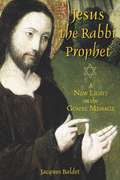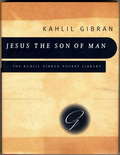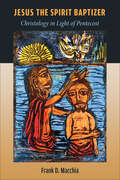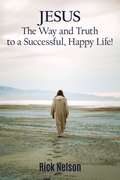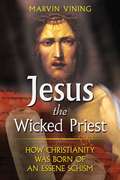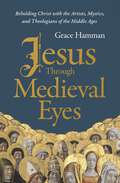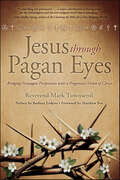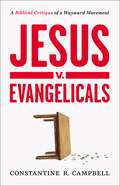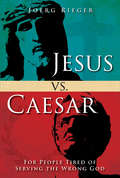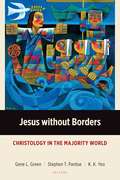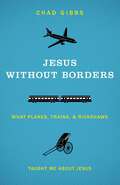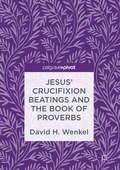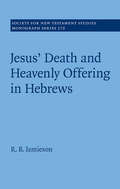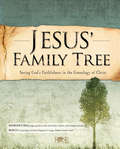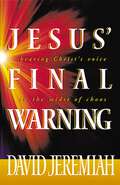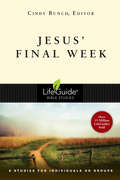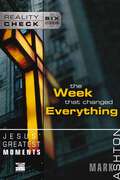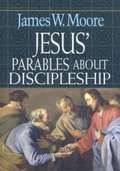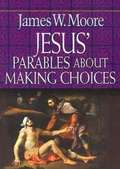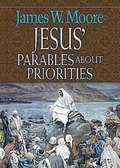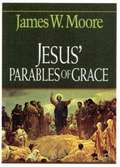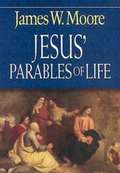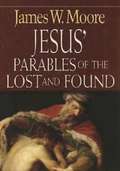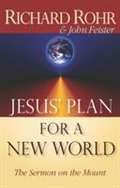- Table View
- List View
Jesus the Rabbi Prophet: A New Light on the Gospel Message
by Jacques BaldetRestores the historical context of the gospels and the Jewish nature of the message of Christ• Uses the latest historical findings to explore the life of Jesus in its true historical setting• Shows that Jesus was a Jewish teacher who sought to restore dignity to the ostracized members of his societyThe canonical gospels were in large part written by authors who were not eyewitnesses to the events they described, and their writings were slanted to fill the needs of the new Church. As a result, a huge gulf exists between the Christ of the Christian church and the historical Jesus. In Jesus the Rabbi Prophet scholar and historian Jacques Baldet seeks to restore the historical context and true nature of the Jewish society in which Jesus lived, and through which his actions assume on an entirely different meaning.The research of modern historians has shed much new light on the historical circumstances at work in Judaea and the Roman provinces that Jesus knew. Looking at the life of Jesus in its broader historical setting has given Jacques Baldet answers to many of the questions that have puzzled historians, such as when did Jesus really live and what was the true nature of his family, convictions, and spiritual beliefs. From this vibrant and highly informed perspective the deeper story of the man from Galilee emerges: Rabbi Jesus was both a Jew imbued with the monotheistic teaching of the Torah and a visionary who preached of the kingdom within. Viewed in their proper historical context, the Stations of the Passion and Christ’s betrayal by Judas and death on Calvary take on a new light. Baldet shows that the true life and original message of Jesus were concealed beneath the literary creations that primarily reflected the agenda of the early Church. Jesus was not trying to start a new religion. He was a Jewish teacher who sought to reform the faith of his fathers by restoring dignity to the unfortunate and ostracized members of his society.
Jesus the Son of Man
by Kahlil GibranHere Jesus is portrayed through the words of 77 contemporaries who knew him - enemies and friends: Syrians, Romans, Jews, priests, and poets. This edition restores the original format with 2 paintings and 12 drawings.From the Hardcover edition.
Jesus the Spirit Baptizer: Christology in Light of Pentecost
by Frank D. MacchiaIn Jesus the Spirit Baptizer, globally recognized Pentecostal theologian Frank Macchia offers a Christology based on the premise that Pentecost is the culminating point of the identity and mission of Jesus. Drawing from both classical and contemporary sources, Macchia probes the fundamental connection between the person of Christ and the Holy Spirit, arguing that Christology properly explicates Jesus as the one who bears the Spirit so as to impart the Spirit to all flesh.
Jesus the Way and Truth to a Successful Happy Life!: Jesus: Four Steps that Lead to Peace, Joy, True Success, and Happiness.
by Rick NelsonAre you claiming all of Gods promises and benefits to live the abundant joyful life? Learn the four key principle steps Jesus taught that promises to give you peace, joy, and happiness in every aspect of your life. Jesus said, I am the way and truth to that life. John 14:6 I wasted 40 years of my life trying to find happiness in all the wrong ways with drugs and alcohol, and never found it. You&’ll hear a lifetime of experience and stories of how Jesus dramatically changed my life by following his steps. He has a blessed journey planned ahead for you too.
Jesus the Wicked Priest: How Christianity Was Born of an Essene Schism
by Marvin ViningDecodes the Dead Sea Scrolls to reveal Christianity’s hidden Essene origins • Reveals the Essenes as key figures behind Jesus’s trial, torture, and crucifixion • Shows how Jesus, a former Essene himself, was deemed “the Wicked Priest” for his liberationist politics and humanist bent • Examines the lost Christian doctrine of reincarnation and the secret role of Gabriel in the Virgin Birth The Dead Sea Scrolls, discovered in 1947 at Qumran, are generally believed to have been written by a Jewish sect known as the Essenes between 350 BCE and 70 CE--but until now no convincing methodology has linked the Scrolls to the actual life and teachings of Jesus. Marvin Vining builds from the controversial work of Barbara Thiering to demonstrate that the Scrolls do speak directly to the origins of Christianity and even reflect a mirror image of the Gospels from the perspective of Jesus’s enemies.Christianity arose out of a schism between the exclusivist, rigid, and militant views of the Essenes and the inclusivist, tolerant, and nonviolent views of Jesus. Jesus was raised an Essene, but he refused to follow their orthodoxy. Vining shows that the Dead Sea Scrolls are written in a secret coded language called pesher in which Jesus emerges as the Wicked Priest, the antagonist to the Teacher of Righteousness who was the leader of the Essenes. Jesus the Wicked Priest revitalizes the Gospel message by revealing Jesus’s true role as a tireless social reformer and revolutionary teacher. Vining’s study reopens Christian doctrinal questions supposedly long settled, such as reincarnation and the Virgin birth--even demonstrating that these two issues are related. He discloses that the angel Gabriel was incarnate in a living human being and transmitted the seed of a holy bloodline to the Virgin Mary.
Jesus through Medieval Eyes: Beholding Christ with the Artists, Mystics, and Theologians of the Middle Ages
by Grace HammanJesus through Medieval Eyes will take you on an exploration of medieval representations of Jesus in theology and literature.Who is Jesus? What is he like? And who am I, encountering Jesus? These questions were just as important to Christians in the Middle Ages as they are today.And yet—as C.S. Lewis noted—the modern church tends to forget that people of different cultures and times also thought carefully about who Jesus was; and sometimes their ideas and emphases were different.Medievalist scholar Grace Hamman believes that we can deepen our understanding and adoration of Christ by looking to the Christians of the Middle Ages. Medieval Europeans were also suffering through pandemics, dealing with political and ecclesial corruption and instability, and reckoning with gender, money, and power. But their concerns and imaginations are unlike ours. Their ideas, narratives, and art about Jesus open up paradoxically fresh and ancient ways to approach and adore Christ—and to reveal where our own cultural ideals about the Messiah fall short.Medieval representations of Jesus span from the familiar—like Jesus as the Judge at the End of Days, or Jesus as the Lover of the Song of Songs—to the more unusual, like Jesus as Our Mother. Through the words of medieval people like Julian of Norwich, St. Bernard of Clairvaux, Margery Kempe, and St. Thomas Aquinas, we meet these faces of Jesus and find renewed ways to love the Savior, in the words of St. Augustine, that "beauty so ancient and so new."
Jesus through Pagan Eyes: Bridging Neopagan Perspectives with a Progressive Vision of Christ
by Mark TownsendFor Pagans and Christians alike, Jesus Through Pagan Eyes offers a provocative portrait ofJesus—as a compassionate, life-affirming, nature-inspired spiritual teacher, freed from the limiting ideology of the Church. Rev. Mark Townsend sets the stage by exploring the historical evidence of who Jesus was as a human being before delving into the realm of metaphor and mythology, the notion of Christ, and the Church's conception of Jesus as Christ.The heart of this unique book lies in the thoughtful and deeply moving collection of stories, essays, and interviews about Jesus from today's most respected Pagan, Wiccan, and Druidic leaders. Contributors such as Maxine Sanders, Christopher Penczak, Janet Farrar, Diana Paxson, Philip Carr-Gomm, Oberon Zell-Ravenheart, John Michael Greer, Selena Fox, and Raven Grimassi explore the historical figure of Jesus in relation to Witchcraft, the tarot, goddess worship, and shamanism—while illustrating how this god of the Christian church blesses and inspires those who embrace non-traditional spiritual paths.Whether you envision Jesus as an ascended master, a human teacher, or a mythic god-man, this remarkable book will introduce you to a Jesus who fits fully into the Pagan imagination.Praise:"Townsend uses Jesus to initiate dialogue, and he does so in way that is accepting and inclusive of many understandings and interpretations of Jesus, his purpose, and his relevance (or irrelevance) in the religious practices of contemporary Pagans."—Huffington Post"This work admirably promotes understanding between belief systems that have a sometimes uneasy relationship."—Publishers Weekly
Jesus v. Evangelicals: A Biblical Critique of a Wayward Movement
by Constantine R. CampbellAmerican evangelicalism is at a crisis point.The naked grasping at political power at the expense of moral credibility has revealed a movement in disarray. Evangelicals are now faced with a quandary: will they double-down and continue along this perilous path, or will they stop, reflect, and change course? And while support of Donald Trump has produced the tipping point of the evangelical crisis, it is not by any means its only problem.Evangelicals claim the Bible as the supreme authority in matters of faith. But in reality, it is particular readings of the Bible that govern evangelical faith. Some evangelical readings of the Bible can be highly selective. They distort the Bible's teaching in crucial ways and often lead evangelicals to misguided attempts to relate to the world around them. Many Christians who once self-professed as "evangelicals" can no longer use the term of themselves because of what it has come to represent--power-mongering, divisiveness, judgementalism, hypocrisy, pride, greed. Some leave not just evangelicalism but Christianity for good.Jesus v. Evangelicals is an insider's critique of the evangelical movement according to its own rules. Since evangelicals regard themselves governed by the Bible, biblical scholar Constantine Campbell engages the Bible to critique evangelicals and to call out the problems within the contemporary evangelical movement. By revealing evangelical distortions of the Bible, this book seeks to restore the dignity of the Christian faith and to renew public interest in Jesus, while calling evangelicals back to his teaching. Constantine Campbell appeals to evangelicals to break free from the grid that has distorted their understanding of the Bible and to restore public respect for Christianity in spite of its misrepresentations by the evangelical church.
Jesus vs. Caesar: For People Tired of Serving the Wrong God
by Joerg RiegerWhen we observe a tension between Jesus and Caesar, we acknowledge that a fundamental tension remains at the heart of Christianity. When this tension is poorly understood, Christians face disastrous consequences. The tension is not between religion and atheism or secularism. Nor is it between organized religion and personal spirituality. The tension is located within the heart of Christianity itself because it is a radical conflict between true and false forms of Christian faith. Jesus embodies and exposes this tension in ways that illuminate both how God is with us and what must change for a world that participates in God’s life. This book serves as an indictment of the pieties of empire, whether government, corporate or any other forms of the faith that dominate and exclude. One form of Christian faith (Jesus) versus another form of Christian faith (Caesar). Whom and what will we trust and serve? What did Jesus disclose to the religious, economic, and political worlds of Israel and Rome?This tension between true and false forms of religion is also deeply rooted in the Jewish traditions. The Hebrew prophets were gravely concerned about established forms of Jewish religion that appear to be respectable but result in oppression. The prophet Isaiah hears the voice of God pronouncing judgment: "You serve your own interest on your fast day, and oppress all your workers" (Isaiah 58:3). True religion loosens "the bonds of injustice" (Isa 58:6) while self-serving religion is false religion.This tension between true religion and false religion is a critical opportunity for those who would follow Jesus instead of "Caesar."
Jesus without Borders: Christology in the Majority World (Majority World Theology (MWT))
by Green, Gene L.Though the makeup of the church worldwide has undeniably shifted south and east over the past few decades, very few theological resources have taken account of these changes. Jesus without Borders -- the first volume in the emerging Majority World Theology series -- begins to remedy that lack, bringing together select theologians and biblical scholars from various parts of the world to discuss the significance of Jesus in their respective contexts.Offering an excellent glimpse of contemporary global, evangelical dialogue on the person and work of Jesus, this volume epitomizes the best Christian thinking from the Majority World in relation to Western Christian tradition and Scripture. The contributors engage throughout with historic Christian confessions -- especially the Creed of Chalcedon -- and unpack their continuing relevance for Christian teaching about Jesus today.Watch a 2015 interview with two of the editors of this book here:
Jesus without Borders: What Planes, Trains, and Rickshaws Taught Me about Jesus
by Chad GibbsChad Gibbs has lived his entire life in Alabama, the buckle of America’s Bible Belt, where Christianity is a person’s default setting. In Jesus Without Borders, Gibbs steps outside of his very comfortable existence, to learn what it’s like to be a Christian anywhere else in the world. Over the course of many months, Chad and his Alabama worldview spent time with believers from Beijing to Rio de Janeiro, worshiping with them and observing not only how their faith influences their daily lives but also how their daily lives influence their faith, in hopes of learning which parts of his faith have been compromised by the American Dream. Reflecting on conversations and experiences, Gibbs wrestles with a wide range of questions from his conservative Christian background, including politics and patriotism in the church and how living in Alabama has shaped his views on pacifism, alcohol, and Christ himself. An attempt to extract and examine the biases in the author’s own faith, Jesus Without Borders will have readers questioning if they believe certain things because they are a Christian, or because they are an American, as they meet believers from around the world with differing views on a variety of subjects. Told with Gibbs’ trademark humor, Jesus Without Borders enlightens and entertains, introducing readers to believers around the world in hopes of eliminating prejudices and misconceptions, clearing away the parts of our culture that keep us from seeing a clearer picture of Christ, and living connected to the family of faith around the globe.
Jesus' Crucifixion Beatings and the Book of Proverbs
by David H. WenkelThis study takes a Christian perspective on the entire Bible, rather than simply the New Testament. David Wenkel asks: Why did Jesus have to be beaten before his death on the cross? Christian theology has largely focused on Jesus' death but has given relatively little attention to his sufferings. Wenkel's answer contextualizes Jesus' crucifixion sufferings as informed by the language of Proverbs. He explains that Jesus' sufferings demonstrate the wisdom of God's plan to provide a substitute for foolish sinners. Jesus was beaten as a fool - even though he was no fool, in order to fulfill God's loving plan of salvation. This analysis is then placed within the larger storyline of the whole bible - from the Garden of Eden to the story of Israel and beyond.
Jesus' Death and Heavenly Offering in Hebrews (Society for New Testament Studies Monograph Series #172)
by R. B. JamiesonThis book addresses two crucial, related questions in current research on the Epistle to the Hebrews: when and where did Jesus offer himself? And what role does Jesus' death play both in Hebrews' soteriology as a whole, and specifically in Jesus' high-priestly self-offering? The work argues that the cross is not when and where Jesus offers himself, but it is what he offers. After his resurrection, appointment to high priesthood, and ascent to heaven, Jesus offers himself to God in the inner sanctum of the heavenly tabernacle, and what he offers to God is the soteriological achievement enacted in his death. Hebrews figures blood, in both the Levitical cult and the Christ-event, as a medium of exchange, a life given for life owed. Represented as blood, Christ's death is both means of access and material offered: what he achieved in his death is what he offered to God in heaven.
Jesus' Family Tree: Seeing God's Faithfulness In the Genealogy of Christ
by Rose PublishingPacked with REPRODUCIBLE pages, timelines, family trees, and simple summaries, this incredible reference book gives a fantastic overview of 30 key people in Jesus' ancestry. Perfect for students, pastors, Bible study teachers, and those interested in seeing God's faithfulness throughout the Old and New Testament. The remarkable heroes and heroines in the ancestry of Jesus teach us a lot about God's faithfulness over the centuries. Each character in Jesus' family tree gives us a glimpse of how God works all things--even the tragedies and missteps--together for good. Enjoy Covering 30 Key People from Jesus' Family Tree!Looking at the dozens of names listed in Jesus' genealogy (family tree) can be quite overwhelming--and it can be hard to know what's important. Now you can easily dive into the fascinating lives of 30 key people from Jesus' family tree, including Adam, Noah, Abraham, Ruth, David and more with this full-color reproducible book. * See how God fulfilled his promises through the generations--despite the strengths and weaknesses of each individual.* Deepen your understanding of how Jesus fulfilled Old Testament prophecies regarding the Messiah's ancestry--he was from the family line of David, from the seed of Abraham, from the stem of Jesse, and more. * Find out fascinating facts, such as why 5 women were mentioned in Jesus' family tree (when they were usually never mentioned).* Enjoy having quick overviews that will add depth to any study on Jesus Christ and his link to the Old Testament, starting in the Book of Genesis.* Get incredible charts, maps and time lines showing hundreds of facts at a glance. BONUS! Genealogy of Jesus Diagram: A fold-out family tree from Adam and Eve to Jesus Christ. Shows every person in the Bible who is listed in Jesus' direct ancestry.
Jesus' Final Warning: Hearing Christ's Voice in the Midst of Chaos
by David JeremiahIn the confusion of voices at the turn of the millennium, Christians need to hear one voice above all others: the voice of Jesus Christ. Based on the Olivet Discourse in the book of Matthew, Jesus' Final Warning offers perspective and timely insights from the Lord Jesus to comfort, encourage and challenge His Church in these stressful, distracting times.
Jesus' Final Week (LifeGuide Bible Studies)
by Bunch CindyThe events that took place during Jesus' final week on earth—Palm Sunday, the Last Supper, the trial, Jesus' death and his resurrection—are foundational to your salvation and your Christian life. As these Bible studies allow you to focus more closely on these amazing events, you'll gain new understanding about who Jesus is and how he loves you. This eight-session LifeGuide Bible Stud features questions for starting group discussions and for meeting God in personal reflection. Leader's notes are included with information on study preparation, leading the study and small group components as well as helps for specific Bible passages covered in the study. Presented in a convenient workbook format and featuring the inductive Bible study approach, LifeGuides are thoroughly field-tested prior to publication; they're proven and popular guides for digging into Scripture on your own or with a small group. For over three decades LifeGuide Bible Studies have provided solid biblical content and raised thought-provoking questions—making for a one-of-a-kind Bible study experience for individuals and groups. This series has more than 130 titles on Old and New Testament books, character studies, and topical studies. PDF download with a single-user license; available from InterVarsity Press and other resellers.
Jesus' Greatest Moments: The Week That Changed Everything (Reality Check)
by Mark AshtonThe Reality Check series makes just one assumption: that you’re serious enough about your spiritual journey to investigate Christianity with an open mind. This isn’t about joining anyone’s religious club—it’s about being real with yourself and with the others in your group. Since no one has all the answers, there’s plenty of room for discussion. After all, if there is any truth to the Bible’s stories about Jesus, then one thing he’d welcome are questions and opinions that come from honest, earnest hearts.Never has one week made such a far-reaching difference. It began with the applause of the masses for their controversial hero. It darkened into betrayal, a kangaroo court, and a brutal execution. And it concluded with an event so stunning that it has shaped history ever since: the resurrection of Jesus from the dead. As you relive the dramatic highs and lows of this unparalleled week, you’ll discover why Jesus was far more than a great moral teacher—and why, among all other religious leaders, Jesus stands without equal.Jesus’ Greatest Moments includes these sessions: The Grand Entrance Betrayed by a Friend Framed!? A Dramatic Crisis The Comeback! A Startling ImpactFor the Group LeaderReality Check is for spiritual seekers of every persuasion. Uncompromisingly Christian in its perspective, it steers wide of pat answers and aims at honesty. This innovative and thought-provoking series will challenge you and those in your group to connect heart to heart as together you explore the interface between Jesus, the Bible, and the realities of this world in which we live.
Jesus' Little Instruction Book
by Thomas CahillJesus' teachings have reached across two millenia, inspiring, informing, and uplifting people from all walks of life. In this elegant little volume, a noted religious publisher and biblical student has collected Jesus' key messenges, culled from the Gospels. Organized thematically, Jesus' words speak directly to contemporary lives and convey a man unlike any other man whose life contains a message for all. Engaging and nondoctrinal commentary throughout places the sayings in their historical context and drawn to this simple and beautiful rendering of Jesus' unique--an, even today, unconventional--message for the heart.From the Trade Paperback edition.
Jesus' Parables About Discipleship
by James W. MooreThis six-session short-term study series from Jim Moore is organized around the general theme of Discipleship. This study serves as a sixth volume following Jesus' Parables of Grace, Jesus' Parables of Life , Jesus' Parables of the Lost and Found, Jesus' Parables About Making Choices, and Jesus' Parables About Priorities. The book also contains a study guide.Each chapter will focus on a particular parable, and will feature the author telling readers what Jesus was saying through the parable, both to listeners of his day and to us today in our own lives. The chapters will focus on key characteristics of discipleship such as unconditional love, humility, service, vision, listening, and action.
Jesus' Parables About Making Choices
by James W. MooreThis six-session short-term study series from James W. Moore is organized around the general theme of "Making Choices." This study serves as a fourth volume to Jesus’ Parables of Grace (Spring 2004), Jesus' Parables of Life (Spring 2005), and Parables of the Lost and Found (Spring 2006). The book also contains a study guide.
Jesus' Parables about Priorities
by James W. MooreJames W. MooreParables slip up on us. They flip our values. They turn our world upside down. They surprise us. This is the great thing about the parables of Jesus: They are always relevant and always personal. They speak eloquently to you and me, here and now. In this book, we will examine some of Jesus’ thought-provoking parables, parables about priorities, to see if we can find ourselves and God’s truth for us in these magnificent “truth-stories.” They are, after all, truth-stories from the mind of Jesus that can change our lives as they proclaim God’s truth for you and me.—adapted from the introductionEach of the six chapters features a key passage of Scripture and is centered on a theme from one of Jesus’ parables, includingThe Priority of LoveThe Priority of GraceThe Priority of Being PreparedThe Priority of CourageThe Priority of ForgivenessThe Priority of Strong FoundationsJAMES W. MOORE, popular speaker and preacher, is the author of Yes, Lord, I Have Sinned, but I Have Several Excellent Excuses; God Was Here and I Was Out to Lunch; When Grief Breaks Your Heart; There’s a Hole in Your Soul That Only God Can Fill; and many other books. He and his wife, June, live in Fairview, Texas.
Jesus' Parables of Grace
by James W. MooreParables studied are: The Sower, the Seeds, and the SoilsThe Prodigal SonThe Elder BrotherThe Unjust JudgeThe Good SamaritanThe Least of These
Jesus' Parables of Life
by James W. MooreThis six-session short-term study from Jim Moore is organized around the general theme of parables of life. Each chapter will focus on a particular parable, and will feature Dr. Moore telling readers what Jesus was saying through the parable, both to listeners of his day and to us today in our own lives. The chapters will focus on such stories as "The Laborers in the Vineyard," "The Pharisee and the Tax Collector," "The Weeds Among the Wheat," "The Ten Pounds," "Dives and Lazarus," and "The Unmerciful Servant." The book also includes a study guide.
Jesus' Parables of the Lost and Found
by James W. MooreThis six-session short-term study series from Jim Moore is organized around the general theme of parables. This study serves as a third volume to Jesus’ Parables of Grace (Spring 2004) and Jesus' Parables of Life (Spring 2005). Each chapter focuses on a particular parable, and features Jim Moore telling readers what Jesus was saying through the parable, both to listeners of his day and to us today in our own lives. The planned parables include "The Lost and Found Sheep" (Luke 15:1-7), "The Lost and Found Coin" (Luke 15:8-10), "The Lost and Found Son" (Luke 15:11-24), "The Lost and Found Gifts" (Luke 15:11-24), "The Lost and Found Elder Brother" (Luke 15:25-32), and "The Lost and Found Celebration" (Luke 14:15-24). The book also contains a study guide.
Jesus' Plan For A New World: The Sermon On The Mount
by Richard Rohr John Bookser FeisterWhen Jesus talked about the Kingdom of God, he was talking about an utterly different way of relating to human society as we know it. He was talking about a new world order, a term recently on the lips of politicians. What a false sense of the term they have used, contends popular preacher and author Richard Rohr.
